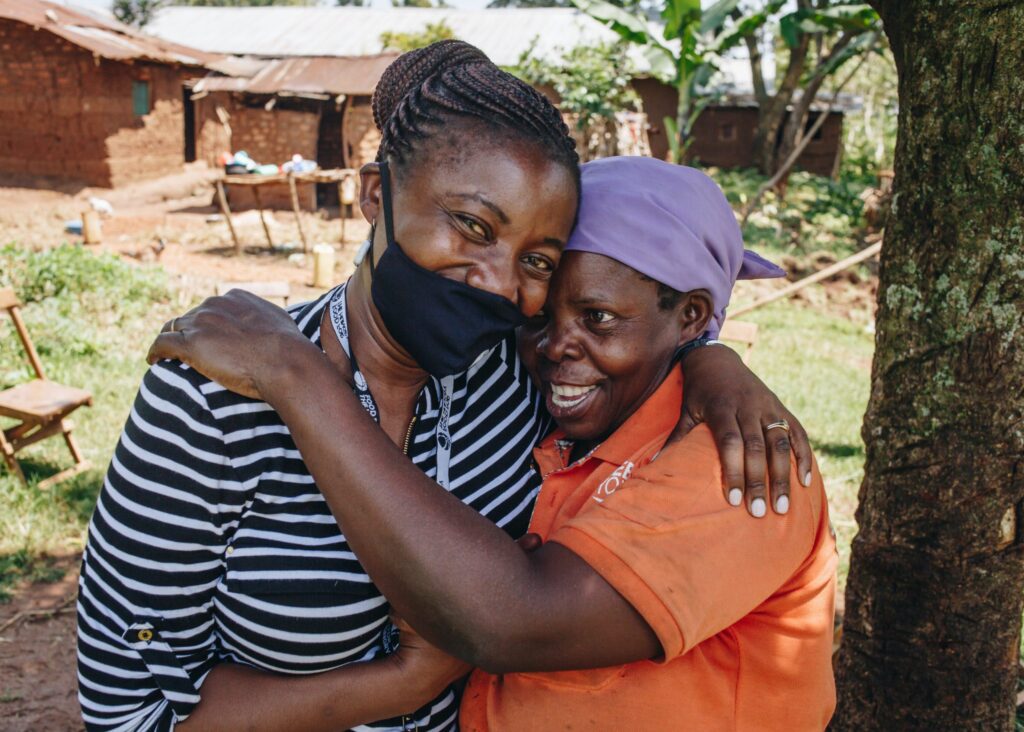In Psalm 139, David wrote: “For it was You who created my inward parts; You knit me together in my mother’s womb. I will praise You because I have been fearfully and wonderfully made.”
All human beings, regardless of their social status, ethnicity, gender, or life experiences, should be treated with dignity and respect. For Christian faith-based organizations (FBOs), the Bible supports this. And belief in the beauty and importance of gender equity and equality is shared by other FBOs worldwide.
The role of women in leadership has historically been and continues to be a challenging issue for many FBOs. That’s why Food for the Hungry (FH), working with three other organizations, will address how international relief and development FBOs can embrace and advance gender equity and equality at the 2022 Women in Global Development Leadership Forum.

The presence of women and minorities in senior leadership roles – especially in an international organization – is critical. It offers a unique platform for success in achieving the impact we are seeking. It makes an organization stronger when the talents, skills, and experiences of each of these leaders further provide perspective and wisdom for our decisions and daily work.
Through my 25 years working at FH, we tried to do this, but we often failed to follow through. We accomplished small gains, but the system didn’t enable women and minorities to grow into leadership roles.
Lifting Women Up: Becoming a Sponsor
When I participated in a previous WILD Network conference a few years ago, I learned about the importance of “Sponsors” and why they are critical to the advancement of women in leadership. While this was a new term for me, I have witnessed this concept in my life before.
My mother demonstrated how to be a Sponsor when I was a young girl. Tragically, domestic violence was common in South America, where I was raised. Women would come to our house with their faces bruised and swollen, seeking a way to escape their bad situations. They would ask my mom for advice and a small monetary loan.
As they would share their stories, my mom would be shedding many tears with them because she felt their pain as her own. My mom was often knitting sweaters to sell, so she would hand the visiting women unfinished garments and ask if they would like to put buttons on them.
Some of the women would not know how, but she took the time to teach them. Pretty soon, they were having a lively conversation. When the women got ready to leave, my mom would hand them some money and say, “Now go, wash your face, this is not the end… I am here.” The women accepted the money, saying that as soon as they made some on their own, they would pay her back. To which my mom responded “You already did! There is nothing that needs to be paid back, you earned it by sewing the buttons on the sweaters.” She didn’t just have empathy for them, but she included them in the many ventures she took on, or she advocated for them as they went on their own journey.

Men Can Be Sponsors, Too
It is not only up to women to fill this role. It is also important that men in leadership or in positions of influence step up to be Sponsors for women.
My grandfather was my first Sponsor. He was very respected by the family, the church, and his community. As a young woman, I often suffered from low self-esteem. I would attempt to do something without success and then wanted to give up. Observing this, he would say, “I do not know how to do it either. But what I can tell you is that your Grandma also didn’t know how to do many things. But she would try over and over again until she would slowly master it. You are so much like her, so I have no doubt that you will accomplish it as well.”
Since I had so much respect for him and knew that whatever he said was true, I would try again. This shaped how I saw myself and taught me to see challenges as great opportunities instead.
To clarify, mentors are not the same as Sponsors. While mentors play a very important role to guide and encourage, a Sponsor is a hands-on champion committed to the success of the person. This role is especially important within FBOs, where we are in the business of reconciliation. I want to challenge people at the WILD conference to become Sponsors, equipping women to rise up and become the leaders they are meant to be.
When our new CEO Mark Viso came on board in 2020, our executive team consisted of 16% women and 33% people of color (POC). In just two years, this has changed significantly. Our leadership team is now diverse, comprising 50% women and 50% POC. Our CEO indeed is a great Sponsor and in many ways the architect of this change, demonstrating that it can happen.
Our faith and values inform us how we should respond. If FH is an organization that upholds “the cause of the oppressed and gives food to the hungry” (Psalm 146:7), and answers God’s call that “the poor have hope and injustice shuts its mouth,” (Job 5:16) then we must be intentional in addressing gender equity and equality. We must be deliberate in removing systemic barriers, providing opportunities for our staff members – both male and female, and people of all backgrounds – to achieve their full potential and experience a culture of belonging, together respecting and celebrating our unique differences.
Maria McCulley, Food for the Hungry’s Chief Public Development and Strategic Resources Officer, will speak at the WILD Network’s 2022 Women in Global Development Leadership Forum, May 16-19, 2022, on The WILD Network: Faith-Based Organizations Advancing GEDI in Senior Leadership Teams.
For Further Reading:
Why Indigenous Women are Key to Climate Resilience


